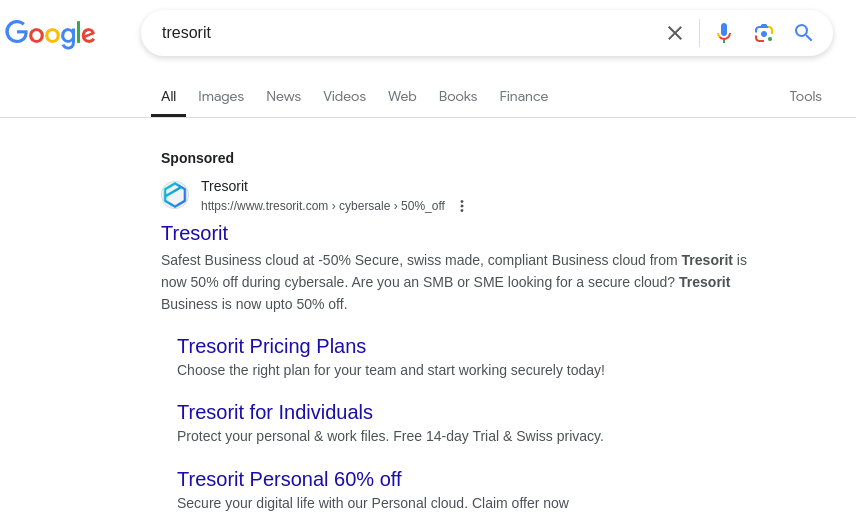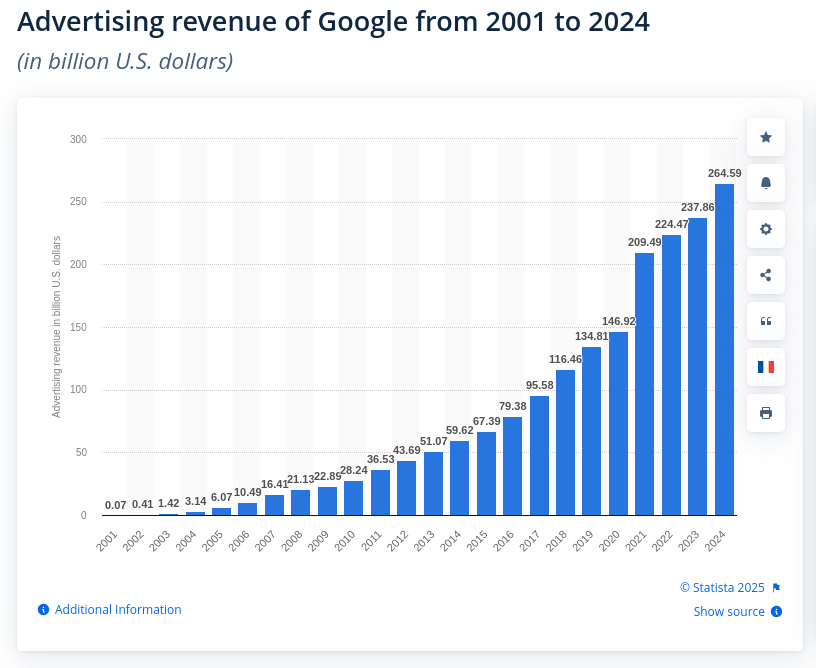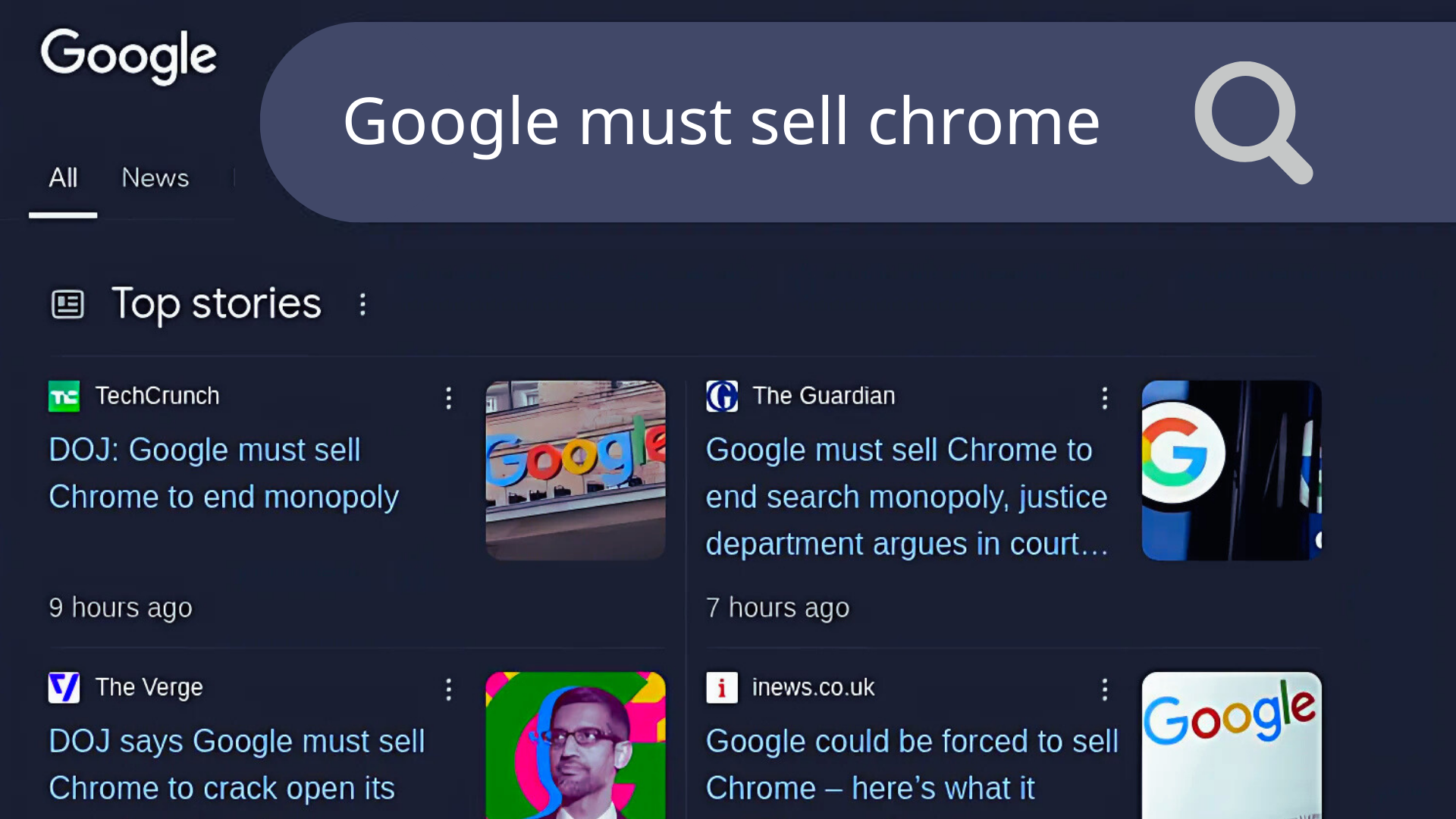Huge win for Internet freedom: Google could be forced to sell its Chrome browser
The DOJ's antitrust decision to break up Google's monopoly is a critical win for a better and fairer Internet for all.
At Tuta, we’ve seen firsthand how Google’s monopolistic practices harm smaller players. In 2024, our website tuta.com was suddenly deranked in Google’s search results without warning or explanation.
This was a huge problem for us: As a small competitor to Gmail, we need to be visible online, particularly via search results so that people looking for secure and private email solutions actually have the chance of finding our service and signing up for a free email account.
Overnight, our visibility dropped dramatically, stifling our growth and forcing us to compete on an uneven playing field. This experience highlighted the sheer power Google has over who sees what on the internet. Google’s power has become so large that companies today pay Google (via Google Search Ads) so that their company’s website is placed first when people - guess what - search on Google for this exact company!


Breaking the monopoly
In my view it is outrageous that tech companies like Tresorit need to pay Google - a tech giant that competes with most tech companies, also with Tresorit - for a top search position. This way, tech companies feed their own competitor - Google - making it easier for Google to maintain its monopolistic position.
And this is not just my personal opinion. Google owns more than 90% of the global search market and nearly 67% of market share for browsers. While there are much better, more private browser alternatives to Chrome, most people stick to what they know already, and since Chrome was launched in 2008 and quickly gained popularity in the following years, it is still the most widely used browser today.
The DOJ’s push to force Google to sell its Chrome browser (which is worth “at least $15-$20 billion, given it has over 3 billion monthly active users,” according to Bloomberg) is a significant step toward breaking up Google’s monopoly based on tracking and ads that has long stifled innovation.


Google makes so much money via advertisements - more than USD 264 billion in 2024 according to Statista - that it can use this money to outpace the competition, or buy new start-ups and incorporate them into its own business - before they even have the chance of becoming a meaningful competitor.
The DOJ stated:
“Google is the gateway to the internet. Its search engine provides instant results. The importance of those results to modern commerce and communication means that every single day, the American people depend on Google. For their everyday needs. For their emergencies. In their search to find valuable results to minor queries or questions of profound significance, Americans have learned to “Google it.”"
"Google’s illegal conduct has created an economic goliath, one that wreaks havoc over the marketplace to ensure that—no matter what occurs - Google always wins.”
Understandably, Google is not amused by the DOJ’s proposed remedy for Google’s violation of American competition law. In a blog post, the company writes:
“Instead, DOJ chose to push a radical interventionist agenda that would harm Americans and America’s global technology leadership. DOJ’s wildly overbroad proposal goes miles beyond the Court’s decision. It would break a range of Google products — even beyond Search — that people love and find helpful in their everyday lives.”
However, just because people love a product, this does not justify severe antitrust violations.
Background on the Google antitrust lawsuit
Background: For years, Google has made significant payments to companies like Apple, Mozilla, and Samsung to ensure Google Search remains the default search engine on their devices and browsers. For instance, Apple receives an estimated $15–20 billion annually for setting Google as the default search engine in Safari, the primary browser on iPhones, iPads, and Macs. This partnership is crucial for Google, given Safari’s extensive mobile market share. Similarly, Samsung reportedly earns around $3–4 billion annually for keeping Google Search as the default option on its smartphones and tablets.
But you can choose alternative, deGoogled phones as we explain here.
These payments show the value that Google puts on being the default search engine. These payments secure Google’s dominance in the search engine market - and they are important proof in the DOJ’s antitrust case underlining why Chrome and Google Search must not be owned by the same company.
Why coupling browser & search is problematic
Google’s Chrome browser commands nearly 67% of the global browser market. This alone is not problematic, but the browser comes with Google Search as the default - and, thus, steers its users toward Google’s ad-driven empire: Search.
The DOJ’s move could mark a turning point so that we finally achieve a fair-level playing field for companies like ours that prioritize user privacy instead of abusing user data for advertisements.
For Tuta Mail and countless other startups, Google’s dominance has made it difficult to compete with its “free” services like Gmail - services that are only free in monetary terms, while users unknowingly pay with their personal data.
By offering extensive free services (in terms of storage and features), many people stick to Google’s offering even though better solutions exist. This limits competition, pushing privacy-focused alternatives like Tuta Mail to the margins.
A better web is possible
Imagine an internet where users are no longer forced into a one-size-fits-all model dominated by ad revenue and surveillance.
Breaking up monopolies like Google’s can open doors to innovation, enabling services like Tuta to thrive by offering solutions that respect user privacy and foster trust. This moment also offers an opportunity to rethink how we approach online business models: Services that prioritize privacy, transparency and user empowerment, rather than the relentless pursuit of ad dollars, can finally get the spotlight they deserve.
When competition flourishes, everyone benefits - not just companies like ours but also the users who gain access to diverse and user-centric options.
If you are looking to join a better web, check out these alternatives to deGoogle your life!
Standing up for fairness and privacy
At Tuta, we believe that privacy is a fundamental right, not a luxury. We’ve built our encrypted email service to protect users from the invasive practices of data-hungry tech giants. But the road to wider adoption has been steep, especially when faced with an adversary as powerful as Google.
The DOJ’s decision to challenge Google’s dominance isn’t just a win for competition, it’s a win for all of us who envision a better internet.
We urge regulators to remain steadfast in their efforts and push for remedies that genuinely level the playing field. In April, a court will decide whether Google must actually sell its Chrome browser. We are watching this case closely and with great interest.
This isn’t just about breaking up a monopoly. It’s about breaking free from a system where a few giants control the online experience for billions.
Let’s seize this opportunity to build an internet that prioritizes fairness, diversity, and - above all - the user.
The future of the web and our digital freedom depends on it.


